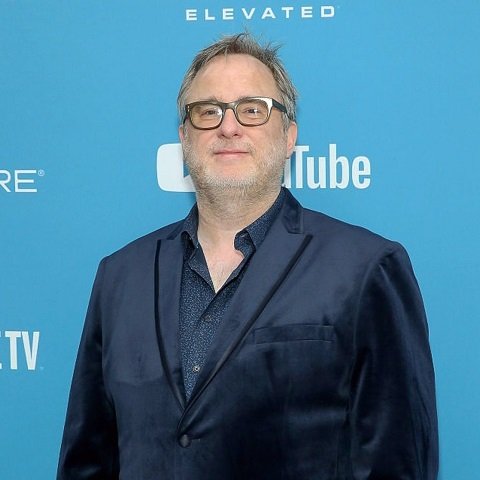Goldcrest Post On AI
Everyone is talking about AI and how it might impact the entertainment industry. How do you see generative AI being applied—in a positive way—to post-production?
Eric Hirsch, Re-Recording Mixer
The reason people are talking about AI is that it’s gotten radically better. It’s developed the ability to learn. If you’re using ChatGPT and it gives you the wrong answer, you give it feedback and it comes back with a better answer. If it says, “Dan Aykroid was not in Ghostbusters,” you say, “That’s not right” and it returns with the correct response. I’m not sure if that applies to sound technology. If you tell it, “that sounds weird,” it doesn't know how it sounds weird. You can try to describe the ghosts in the sound, but that’s not helpful for the AI. I’m sure it will eventually come, but it’s not there yet.
Gregg Swiatlowski, Supervising Sound Editor
AI is a buzzword with some bad connotations. In sound, we’ve been using AI plugins for 15 or 20 years. They’ve become necessary for our work. Without AI tools for things like background sound removal and auto alignment, movies wouldn’t sound the same. It’s great technology. But when AI replaces someone’s job—a bot that allows someone who’s not a sound person to do sound work—things get sketchy. People sometimes have the impression that a computer does the work for you, but that’s not true. An AI plugin may be able to remove noise, but you still need to tell it what noise to remove.
Mike Suarez, Re-Recording Mixer
Machine learning is already having a big impact in terms of improving our work and reducing production time, but it needs guidelines. Think about talent. Suppose an actor in a reality show doesn’t want to say certain things in the voiceover, but the producer of the show decides to use AI to redo it. It’s a question of permission.
Ryan Price, Re-Recording Mixer
There are certainly instances where generative AI and machine learning are good enough: training videos, technical support, text to speech, etc. However, the team at Goldcrest are creatives first. The clients we work with are, likewise, creatives. I don’t see this technology as a threat to the services we provide in the near future because we aren’t aiming for “good enough.”
Evan Anthony, Senior Colorist
Resolve has been using machine learning/AI for a while. The latest version includes many AI tools that we use every day. One is scene detection. At the touch of a button, Resolve analyzes footage and finds all the cut points. The software has had a scene detection tool for about 10 years, but previously it relied on luminance levels. If two scenes were of similar brightness, it might miss the cut. Machine learning has made it much better. It’s more reliable for finding cuts. On one recent project, I used an AI VFX tool for face refinement. It automatically tracked faces, separated the eyes and nose and turned them into keyable maps that I could manipulate independently. I used it to remove bags under eyes, brighten the eyes, do dozens of things that were previously time consuming.
Alex Berman, Senior Colorist
I don’t believe AI will ever replace the human element in terms of decision-making and artistry, but it is useful for a lot of the initial groundwork like insuring we have the right camera profiles. An AI tool that automatically detects which camera was used helps get us to the right starting point. On a documentary where many different cameras were used, a tool like that can save a whole day of prep work. Instead, we have that day for proper finishing. One reason that film, broadcast and streaming is so much more creative today is because we have better tools.
Larry Schmitt, Senior Conform Artist
I believe AI will be a positive asset in post-production by reducing time and costs related to menial tasks. It could save hours of tedious work simply by speeding up the process of organizing and searching for assets. It can also be useful with higher end tasks like frame articulation and image clean up, helping to get those jobs done faster and easier. Still, most functions will require human intervention to ensure they are done correctly. For that reason, I don’t see AI eliminating jobs…at least for the immediate future. It’s simply a tool that will keep people from getting bogged down in technical minutiae and allow them to spend more time being creative.
Twain Richardson, Conform Artist
I’ve been using Resolve’s machine learning tools for several years. One that I rely on is People (Face) Detection. It analyzes all the faces in a project and allows you to tag individuals. If I’m looking for, say, John Brown, it will pull up every clip that John appears in. Another tool I use is Object Removal, which is essentially a rotoscoping tool. If a client wants to remove a logo or to remove license plates, I’m able to use this tool to remove it.
Roman Rossell, Director of Engineering
As a technologist, I see great potential in Artificial Intelligence. It’s already generating a lot of buzz and that’s beneficial. Like “4K” once was, AI has become a catch phrase even before it’s been implemented and integrated into our daily lives. Anything that stimulates conversation is a plus, whether it’s constructive criticism, suggestions for improvements or ideas for accomplishing tasks in new ways.
Wade Rudolph, Head of Production
A generation or two from now, people are going to laugh at what we call AI and machine learning. It’s nothing compared with what they will have. Regardless, AI exists in a virtual world where anything is possible. But determining whether it’s good or not will still require human insight. Our sound and picture teams have gotten great new tools and expect more in the future, but someone will have to operate them. When an editor, colorist or mixer uses AI, they review the work to determine if it is acceptable to the client. A bot is not going to nail it. Perhaps one day software systems may be able to edit, conform and color correct, but it won’t happen soon. We might establish colonies on Mars first.










